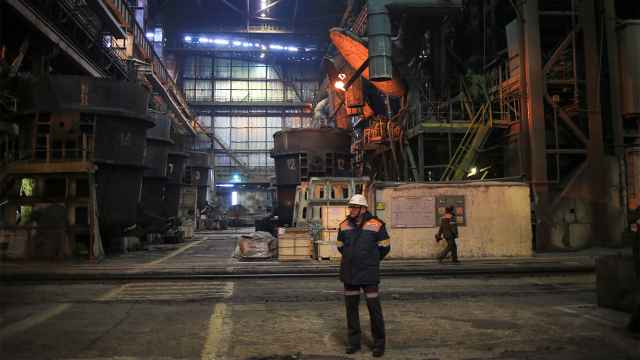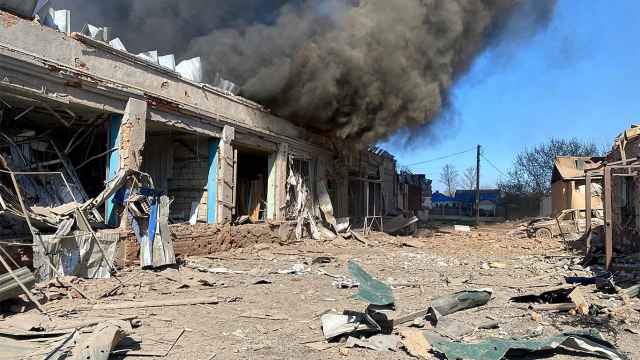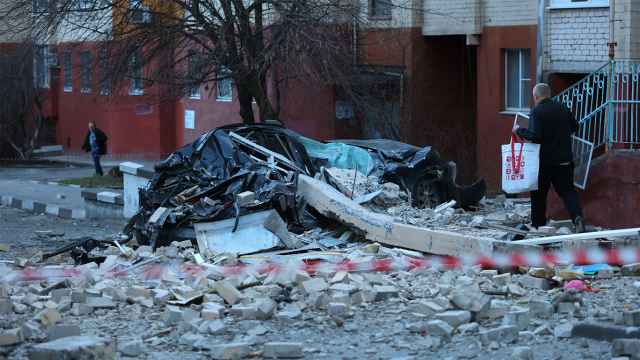Looking back 10 years from now, the most important news of September 2013 may not be Moscow and Washington jousting over Syria's civil war. It may well be China quietly locking down massive quantities of Central Asian oil and gas.
While the world worried about Syria, China's President Xi Jinping deftly moved through Russia's old imperial backyard, signing almost $100 billion in energy deals — $15 billion in Uzbekistan, $30 billion in Kazakhstan and an estimated $50 billion in Turkmenistan.
Stopping in Astana, Kazakhstan's futuristic new capital, Xi pasted a political label on these Chinese-funded business deals. He called it a new "Silk Road Economic Zone."
Evoking the old Silk Road that once brought Chinese silk and porcelain to Europe, he said, " I can almost hear the ring of the camel bells and smell the wisps of smoke in the desert."
Of Central Asia's five former Soviet republics, the Chinese president concentrated on the three blessed with vast oil and gas reserves. He added Kyrgyzstan for a regional security meeting, also inking a $1.5 billion deal to build a second pipeline through the nation and transship Uzbek and Turkmen gas to China.
China's supreme leader skipped energy-deprived Tajikistan, leaving this nation bordering Afghanistan to the Russians. In Russia's largest foreign military deployment, Russia stations 6,000 soldiers in Tajikistan. Russia is laboring to strengthen Tajikistan's defenses in advance of NATO's planned pullout from Afghanistan next year.
While Xi pursues his new "marching westwards" policy, he defers to Russia on security issues in Central Asia, a region administered by Moscow for about 150 years, until 1991. This month, Xi carefully followed protocol, breaking his Central Asia tour with a trip to St. Petersburg to consult with President Vladimir Putin at the Group of 20 meeting. Two days after this meeting, Novatek, a major Russian gas producer, announced that Chinese banks will help finance a $20 billion natural gas project in Russia's Arctic.
China's shopping spree through Central Asia's energy bazaar was so striking that Deputy Foreign Minister Igor Morgulov felt compelled to give a press briefing in Moscow. As China signed "strategic partnerships" with Turkmenistan and Kazakhstan, the Russian diplomat assured reporters, "Our Chinese friends recognize the traditional role our country continues to play in this region, so we do not see any regional rivalry problems."
This sounded like wishful thinking.
When the Chinese president was in St. Petersburg, Rosneft, the Russian state oil company, confounded expectations and failed to announce a contract to build an oil refinery in Tianjin, China. The next day, Kazakhstan announced that China will build a refinery in Kazakhstan. Russia has not built a new refinery from the ground up in Russia since the Soviet era.
China had bargaining power. On Sept. 7, China's state oil company, CNPC, bought a $5 billion stake in Kazakhstan's new Kashagan oil field. Four days later, oil started flowing from the field, rated the world's largest outside the Middle East.
China seems happy to delegate to Russia the task of policing Central Asia.
With Russia providing security, China is free to concentrate on forging a massive trade relationship based on new east-west pipelines and highways.
Trade between China and Central Asia hit $46 billion last year. At the time of the Soviet collapse, in 1991, it was virtually zero. Now it is more than half the $88 billion in Chinese-Russian trade recorded last year, a relationship that grabs all the headlines.
And China's trade with Central Asia is bound to keep jumping. From the strategic point of view, China's leaders believe that energy delivered through land pipelines is more reliable than energy delivered through shipping lanes.
Last year, Turkmenistan shipped China 21 billion cubic meters of gas, just more than half of China's gas imports.
Under the deals signed a few days ago by Xi, Turkmenistan's gas flow is to triple by 2020. Much of the gas will flow from Galkynysh, a field on the border with Afghanistan. Inaugurated by the Chinese president, this gas field is calculated to hold 26.2 trillion cubic meters, making it the second largest in the world.
Energy economists calculate that by 2020, Turkmenistan will supply more than one third of all gas consumed in China. It is a long way for Turkmenistan, a place once seen as an end of the line, backwater assignment for employees of the Soviet Union's Ministry of Oil and Gas Industry.
James Brooke is the Moscow bureau chief of Voice of America.





